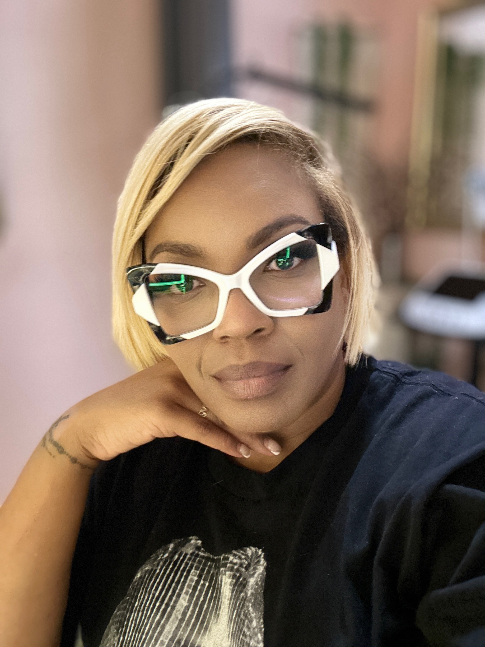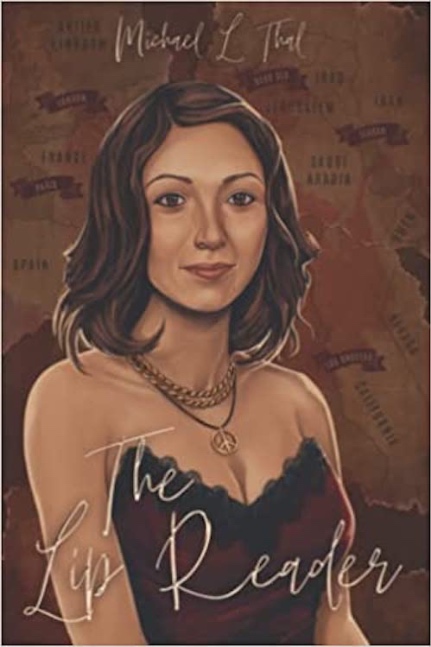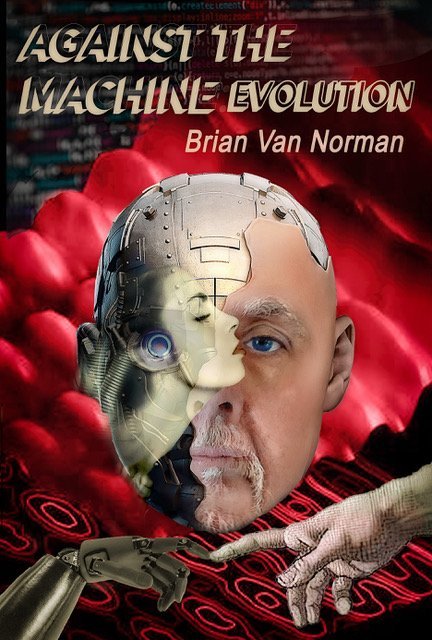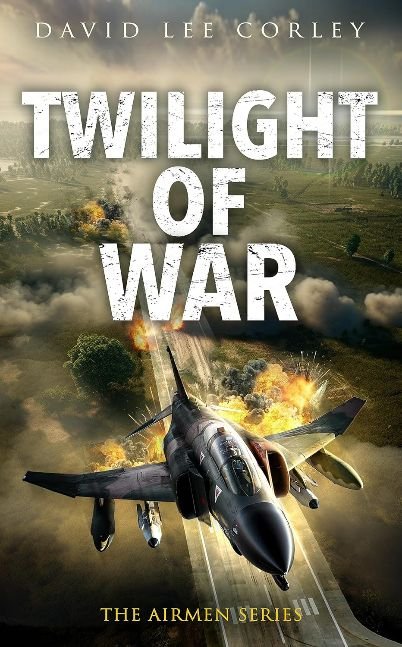- Home
- Book Trailer
- ow to Triumph Over Tragedy – A Faith-Based Conversation with- Remicha Carter
ow to Triumph Over Tragedy – A Faith-Based Conversation with- Remicha Carter
 Remichacarterauthor.com
Remichacarterauthor.com
When you're working on a book and a new idea pops up, should you pursue it immediately (also known as 'UP syndrome') or finish your current project first? What do you think is the best course of action?
Honestly, I can’t relate to ‘UP syndrome’—because when I’m writing a book, I become completely hyper-focused. I’m functioning in real life, doing other tasks, but mentally? I’m a zombie. My mind is constantly turning over Greek and Hebrew terms, digging into historical context, and chasing insights from the text. Until that book is finished, I literally cannot let it go. It’s like the message won’t release me until I’ve fully delivered i
Can you explain your writing process? Do you prefer to create an outline and plan beforehand, or do you prefer to write more spontaneously and organically?
My writing process mirrors how I prepare sermons—but with more depth. I take an expository approach, starting with the biblical text and building everything around it. That means I begin with background and context: Who’s speaking? Who’s being addressed? What’s happening historically and culturally? I study the environment of the author and subjects involved, because context really matters—especially when it’s not something you can fully explain in a 30-minute sermon.
From there, I use exposition to teach the meaning of the text, then illustrate it with relatable stories or examples, and finally apply it to real life. Everything ties back to the bigger theme of Scripture: God’s love for us and His desire to walk with us through every part of life—including our pain.
Describe the [book/series] in 10 words or less for people who are just learning about it.
A Faith-filled guide to overcoming life’s darkest moments with resilience
Would you like readers to have any specific takeaway from your book?
I want readers to know that even in life’s most painful seasons, their story isn’t over—and God can still bring purpose from their pain. They are not alone, and healing is possible, one step at a time.
Share some advice for aspiring authors. What advice would you give to your younger self?1. What is your favorite line from your book?
My advice to aspiring authors is simple: just write it and put it out there. Don’t wait for perfect conditions or approval. Someone is waiting on your words—so give them something to hold onto.
If I could talk to my younger self, I’d say, ‘You don’t have to have it all figured out. Just start where you are, and trust that your voice matters.’
One of my favorite lines from How to Triumph Over Tragedy is:
‘Even if life knocked the wind out of you, you’re still breathing—and that means God’s not finished.’”
Have you ever experienced writer’s block? How did you deal with it?
Yes and no. For me, writing is very seasonal. When the message is there, it’s there—and when it’s not, it’s just not. I don’t force it. I don’t try to push myself to write when I’m not inspired. My writing usually flows from something I’ve studied that resonates deeply, and then I write from that overflow. So I wouldn’t call it writer’s block—I just wait for the right time, and trust the words will come when they’re meant t
Was there anything you had to research for the book?
Yes, indeed. I deeply believe in exposition, so I spend a lot of time researching the historical, cultural, and linguistic context of the Scriptures I write about. That means digging into the original Greek or Hebrew, understanding the setting, and even studying the author’s background. I want readers to grasp not just what the Bible says, but what it meant to its original audience—and how that truth still applies to us today
Did you have any say in the cover design?
Yes, absolutely! As a visual artist, I usually have a clear concept in mind—from the tone and mood to the color palette. I start with the feeling I want the cover to evoke, then use the appropriate tools to bring that vision to life. The cover is just as much a part of the message as the words inside, so I treat it like a visual introduction to the book’s heart.”
What can we anticipate from you moving forward?
Next, I’m releasing I Forgot I’m Her — a bold and intimate reminder for women to reclaim their identity, worth, and voice after loss, burnout, or self-forgetting. It’s raw, healing, and personal.
Did you always want to be an author? If not, what did you want to be when you grew up?
That’s actually a funny question—because I never dreamed of being an author in the traditional sense. But I do remember sitting in Sunday school as a little girl, and thinking, ‘I want to write the Bible lesson.’ Not the booklet or the handout—I wanted to be the one who wrote the lesson itself. Even then, I felt drawn to breaking down Scripture in a way that helped people understand God better. I didn’t know it at the time, but that desire was planting the seeds for what I do now
Where do you like to write? In a coffee shop? In your home office? On the beach?
Funny enough, I may start studying a biblical text at home, but once I lock in, I can’t let it go. I find myself thinking about it in the car, dictating voice memos, scribbling thoughts while I’m working—until it all comes together. For the final draft, I spend a few Mondays in the library’s dedicated writers’ lounge. It’s the coolest thing—several writers sitting in silence around a conference table, eating cookies, and working on our pieces.”
Do you listen to music while you write? If so, what kind of music do you like to listen to?
No, actually—I have to write in complete silence. No TV, no background noise, nothing. It’s funny, because I’m usually someone who thrives with background sound, but when I write, I need stillness to really hear my thoughts
What other hobbies do you have outside of writing?
Outside of writing, I’m also a visual artist. I love creating expressive, faith-infused pieces that often mirror the same themes found in my books—healing, identity, reflection, and resilience. You can view some of my artwork at ArtStation.com/RemiCreates. I also enjoy teaching, speaking, and curating wellness experiences through my salon and spa, Root Awakening Hair Spa, where beauty and self-care meet purpose. Creativity flows through almost everything I do—whether it’s painting, preaching, or building a brand that uplifts others
Are any of the characters in your book based on people in your real life? If so, can you tell us more about that process and how it influenced your writing?
In How to Triumph Over Tragedy, the characters are drawn from Scripture, but their journeys reflect very real moments in my own life. Now, in my next book, I Forgot I’m Her, the connection is even deeper—because she is me, and I am her. Writing that has been both freeing and challenging. It’s intimate in a way that’s had me sitting with the manuscript for a while before sharing it. It’s one thing to write about faith; it’s another to tell your own story with that same level of transparency. But I know that when I release it, it’ll speak directly to the hearts of women who’ve forgotten themselves while trying to hold everything else together
Do you have any personal connection to the story or characters?
Absolutely. I believe everyone has had a Naomi moment—and a Ruth moment. I’ve lived through seasons where it felt like everything that could go wrong, did. I’ve been Naomi, grieving loss and feeling like life was falling apart. But I’ve also been Ruth, stepping out into the unknown with nothing but faith. And just like in their story, I’ve seen God provide—right on time. That’s what makes this book so personal. It’s not just their story—it’s ours t







